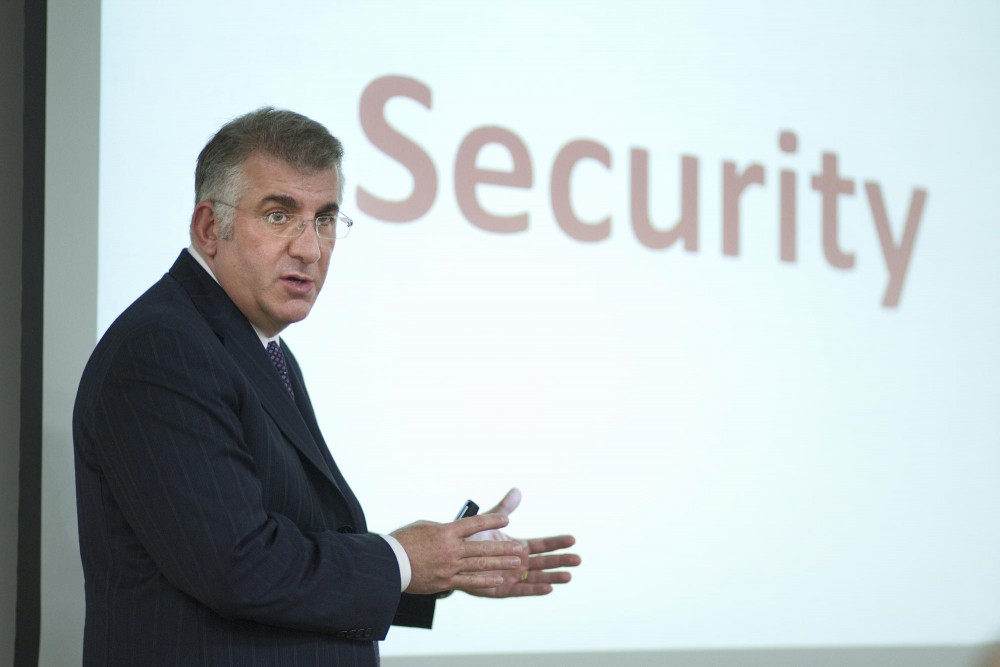With cybersecurity threats projected to increase in the coming year, the University of Minnesota’s Master of Science in security technologies program seeks to prepare graduates to combat these issues in the professional world.
The security industry is set for a “dramatic change,” according to the 2012 and 2013 security predictions report from the Sans Technology Institute. Cyber security has been a niche profession, primarily confined to the national defense industry, but it could grow in the private sector, the report said.
Anticipating similar trends across the industry, the University’s Technological Leadership Institute launched the MSST program in 2009. Since then, the 14-month, 32-credit program has about 30 students per graduating class, said Ginny Levi, a TLI director. The degree gives students a broad view of security issues while allowing deeper exploration into specific subjects, she said.
The program was developed in response to a growing demand for security professionals. Students study security policy, methods and specific applications in the fields of computers, food, infrastructure, disease and global supply chains, said Massoud Amin, TLI’s director.
“With [information technology] risks having an increasing level of impact on our nation’s businesses and government capabilities, it is critical that risks … be taken seriously,” said Andy Albrecht, an MSST student and director of information security at Best Buy.
He enrolled in the program to expand his horizons and said he walked away from each class as a “more well-rounded professional.”
After graduating, Albrecht hopes to continue progressing in the field and someday become the chief information security officer for a large company he can protect from the increase in digital threats.
This year could be the year for the “Cyberwar,” according to a 2012 Threats Projection report from McAfee, which predicts a rise in “offensive cyberweapons” used against countries, organizations and businesses.
“The job of a security professional at its simplest form is really all about managing risk,” said Joe Holmes, a graduate from the MSST program. Next month, he’ll be celebrating his first anniversary as a security professional at Supervalu.
Holmes said his class ST 8111: Methods, Theory & Applications was one of his favorites in the program. Students were tasked with viewing security threats through the eyes of the “bad guys.” His team analyzed the security at Target Field and took a tour of the stadium.
Another course Holmes took involved working on actual security issues for Supervalu, which helped him land a job at the company’s Minnesota office, where he conducts corporate investigations, workplace violence prevention and coordination with emergency response teams.
“Threats to industrial and national infrastructure networks have recently garnered a lot of attention, and there is a very good reason for that. This is one of the few areas in which a cyberthreat endangers the real loss of property and life,” the McAfee report said.
Students are prepared to deal with a variety of situations involving cyber criminals and terrorists, said Elizabeth Amin, a MSST course director. Since some of the graduate students are already professionals, the classes are more of an interactive exchange of ideas than a straightforward lecture, she said.
“This is an entire new discipline and an entire new generation of security professional,” said Michael Osterholm, a professor who gives MSST lectures about bioterrorism and infectious diseases.
Before the University started the program, expertise in security technology had primarily rested with the private sector. But security is a societal concern, he said.
“If it’s not in the hands of the public sector, how can you interface with that?”











